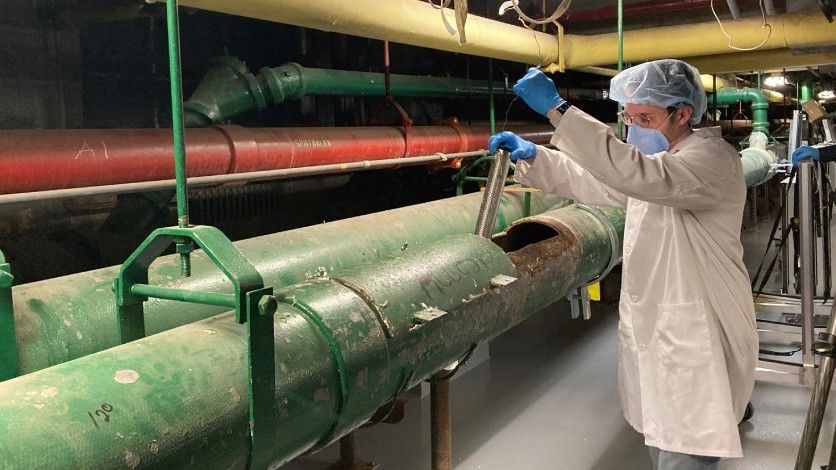Public health officials in New York are planning an expansion of infectious disease monitoring in wastewater in order to detect more illnesses that may be otherwise quietly spreading through a community.
The state Department of Health on Monday announced its plan through $21.6 million in funding, including a $6.6 million grant from the U.S. Centers for Disease Control and Prevention.
Under a series of pilot programs, health officials will begin testing for Influenza A, RSV, Hepatitis A, Norovirus, and antimicrobial-resistant genes. The initial monitoring programs will begin in Erie, Onondaga, Jefferson and Westchester counties.
“Since its inception, the Department’s wastewater surveillance has been a key part of the State’s most critical public health responses,” Acting State Health Commissioner Dr. James McDonald said. “Providing confidential, science-based and community-level information, wastewater monitoring is advancing our tracking of trends for COVID-19 and has been invaluable in identifying polio in communities. These resources directly expand our wastewater monitoring network – and its reach – giving our team additional proactive capabilities to protect and promote the health of New Yorkers against more health threats.”
The expansion is a sign of how COVID-19 and later the spread of polio in the Hudson Valley and New York City area have potentially changed how diseases and community spread can be monitored.
The monitoring of public wastewater for traces of COVID-19 as well as the poliovirus are considered successes, helping health officials determine if the virus is spreading through a community and moving to address it.
A case of polio was first identified in July 2022 and federal, state and local health officials used its existing wastewater detection network to look for polio.
“The New York State Department of Health has already rapidly expanded wastewater surveillance throughout their state and continues to show excellence in the field through this plan for another expansion,” CDC’s National Wastewater Surveillance System State Support Lead Epidemiologist John Person said. “We are excited to work with and learn from them as they pursue the testing of more pathogens in wastewater.”
